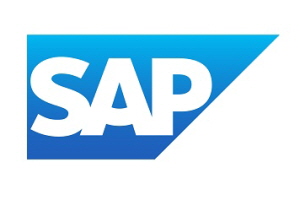SAP가 11월25일부터 12월1일까지 부산에서 열리는 ‘유엔 플라스틱 협약 제5차 정부간협상위원회 회의(INC-5)’에 참여해 플라스틱 오염 종식과 순환 경제로 나아가기 위한 방안을 모색한다.
부산 유엔 플라스틱 협약 회의서 순환 경제 협력 논의

“글로벌 비즈니스의 힘을 활용해 지속가능한 미래를 위한 문제 해결에 필요한 솔루션을 제공할 수 있다”
SAP가 11월25일부터 12월1일까지 부산에서 열리는 ‘유엔 플라스틱 협약 제5차 정부간협상위원회 회의(INC-5)’에 참여해 플라스틱 오염 종식과 순환 경제로 나아가기 위한 방안을 모색한다.
유엔 플라스틱 협약 정부간협상위원회 회의는 플라스틱 오염 종식과 순환 경제로의 전환을 가속화하기 위한 구속력 있는 국제 협약의 개발을 목표로 한다. 이번 5차 회의에서는 협약에 대한 최종 합의가 이뤄질 예정이다.
플라스틱 오염에 적극적으로 대응하지 않을 경우, 2040년까지 플라스틱 생산량이 두 배로 증가할 것으로 예상되는 가운데, SAP는 오늘날 전 세계 플라스틱 및 자재 관리를 담당하는 공급망 시스템을 지원하고 있다.
실제 SAP 고객은 전 세계 상거래의 87%를 차지하며, 수십 년 동안 SAP 소프트웨어는 고객이 플라스틱을 포함한 자재 흐름을 관리하는 데 중요한 역할을 해왔다.
이러한 경험과 통찰을 바탕으로 SAP는 체계적 변화를 이루기 위해서는 협력과 공동 혁신, 효과적이고 원활한 커뮤니케이션이 필요하며, 소프트웨어와 네트워크 기술이 정보 격차를 줄이고 플라스틱 순환 생태계를 구축하는 데 핵심적인 역할을 할 것이라 전망하고 있다.
이번 회의 참석을 위해 방한한 스티븐 제이미슨(Stephen Jamieson) SAP 지속가능성 제품 마케팅 책임자는 “유엔 플라스틱 협약은 다소 도전적인 목표를 제시하고 있지만, SAP는 글로벌 비즈니스의 힘을 활용해 문제 해결에 필요한 솔루션을 제공할 수 있다”고 말했다.
이어 “SAP는 기업들이 플라스틱 오염 종식을 위한 기회를 신속히 파악하고, 그 영향력을 확장할 수 있도록 지원할 준비가 되어 있다”며 “SAP는 이를 위해 필요한 프로세스와 시스템을 이미 갖추고 있다”고 강조했다.
한편 SAP는 지속가능한 미래를 실현하기 위해 앞장서고 있다. 지난 10월 SAP를 포함한 글로벌 기업 20여 개 사는 ‘글로벌 플라스틱 협약을 위한 비즈니스 연합(Business Coalition for a Global Plastics Treaty)’을 통해 각국 정상에게 플라스틱 문제 해결을 위한 강력한 규제를 촉구하는 공개서한에 서명했다.
공개서한에는 기업들이 협약을 효과적으로 이행할 수 있도록 INC-5에서 합의해야 할 핵심 사항 네 가지를 제시했다.
먼저 △유해하거나 불필요한 화학물질과 플라스틱의 제한 및 단계적 퇴출을 위한 글로벌 기준 마련 △포장재 등 플라스틱 제품의 순환형 설계를 위한 업종별 접근 방식과 글로벌 기준 수립 △생산자 책임 재활용 제도(EPR)의 효과적인 실행을 위한 공통된 정의와 핵심 원칙 마련, 마지막으로 △합의를 단계적으로 강화할 수 있도록 감독기관에 강력한 권한 부여다.
또한 지난 22일에는 세계지속가능발전협의회(WBCSD), 딜로이트와 함께 아태 지역 소재의 기업 C레벨 비즈니스 리더들을 대상으로 행사를 열고, 순환 경제를 비즈니스 전략에 통합하기 위한 인사이트를 제공하기도 했다.
 “글로벌 비즈니스의 힘을 활용해 지속가능한 미래를 위한 문제 해결에 필요한 솔루션을 제공할 수 있다”
“글로벌 비즈니스의 힘을 활용해 지속가능한 미래를 위한 문제 해결에 필요한 솔루션을 제공할 수 있다”